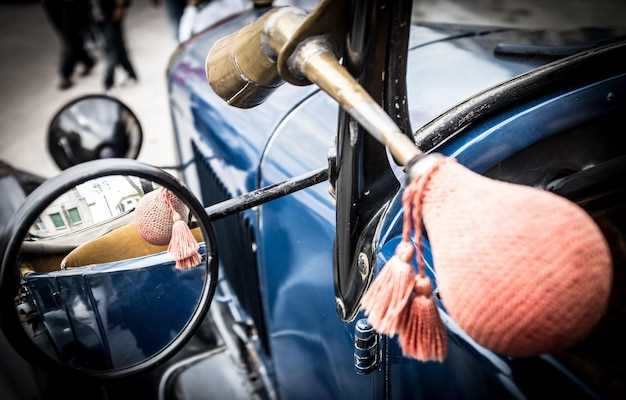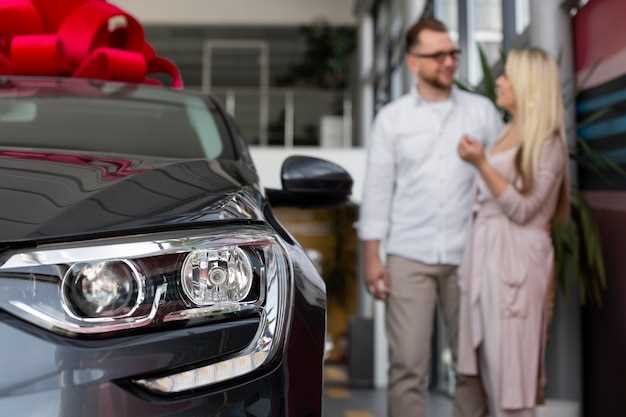
Participating in auctions for classic cars can be both exhilarating and daunting for buyers. Understanding the nuances of the bidding process is crucial for anyone looking to invest wisely in these timeless vehicles. With the right approach, buyers can navigate the complexities of the auction environment and secure a prized classic that fits their collection or investment goals.
The key to successful buying at auction lies in thorough preparation. Researching the specific models, understanding their market value, and being aware of the auction’s particular rules and regulations can significantly enhance a bidder’s chances of success. Knowing your limits ahead of time will also help you maintain control during the high-stakes atmosphere of live bidding.
Additionally, it’s essential to develop a clear strategy for your bidding approach. This can include tactics such as observing bidding patterns of competitors, timing your bids effectively, and leveraging your knowledge of the car’s condition and history. By employing these strategies, you can not only increase your chances of winning but also ensure that you make a sound investment in the classic car market.
Understanding Auction Formats and Bidding Procedures

When participating in classic car auctions, it is essential to comprehend the various auction formats, as well as the bidding procedures involved. This understanding can significantly influence your strategy and enhance your chances of acquiring the desired vehicle at a favorable price.
There are primarily two types of auctions: live auctions and online auctions. Live auctions take place in a physical location where bidders compete in real-time, often resulting in an exciting atmosphere. In contrast, online auctions allow bidders to participate remotely, providing more flexibility but potentially less immediate interaction.
Within these formats, bidding procedures can vary. Most live auctions utilize an ascending bid format, where participants raise their bids incrementally until no one is willing to bid higher. For online auctions, bidders may encounter both ascending and sealed bid formats. In ascending formats, bidders can see their competitors’ bids, while in sealed bid formats, submissions are made privately, enhancing the element of strategy.
Another critical aspect is understanding the auction house’s specific rules and fees. Auction houses may charge buyer’s premiums, which increase the final purchase price. Familiarizing yourself with these details can inform your upper limit for bidding and refine your overall strategy.
It’s also important to establish a bidding strategy before the auction begins. Setting a budget that includes potential fees will help you avoid impulsive decisions driven by competition. Additionally, consider adopting a phased bidding approach, where you incrementally increase your bids rather than entering at your maximum limit right away.
Lastly, evaluate the competition. In live auctions, observing other bidders can give insights into their strategies and willingness to pay. In online settings, reviewing bidding behavior during earlier rounds might reveal patterns that can inform your approach. Ultimately, understanding auction formats and procedures is crucial to developing a successful bidding strategy that aligns with your goals in classic car acquisition.
Evaluating Condition and Provenance Before Bidding
When buying classic cars at auctions, understanding the vehicle’s condition is paramount. Thoroughly inspecting the car for any signs of wear, rust, or damage can save bidders from costly surprises after the purchase. Look for imperfections in the paint, functioning of mechanical components, and signs of restoration work. A comprehensive evaluation may involve checking the engine, transmission, and chassis, ensuring everything is in working order. Bringing a knowledgeable mechanic or a classic car expert can provide a more precise assessment.
Provenance plays a crucial role in determining a classic car’s value. Research the car’s history, including previous owners, maintenance records, and any documentary evidence. A well-documented provenance can enhance the car’s worth and marketability. Look for cars with unique stories, rare models, or notable ownership that contribute to their desirability among collectors. Auction houses often provide background information, which can enrich your bidding strategy.
Combining condition evaluation with a thorough understanding of provenance equips bidders with the necessary insights to make informed decisions. This diligence not only helps in determining a fair bid but also ensures that the investment holds its value over time. As the auction date approaches, finalize your research and prepare to bid confidently, knowing you have thoroughly evaluated both the car’s current state and its historical significance.
Setting a Maximum Bid and Sticking to Your Budget

Participating in classic car auctions can be thrilling, but it’s crucial to approach this experience with a solid strategy. One of the most effective strategies is setting a maximum bid and adhering to it rigorously. This practice not only helps in preventing emotional overspending but also ensures that you remain within your financial limits.
Before the auction, conduct thorough research on the classic cars you are interested in. Evaluate their market value, taking into account factors such as condition, rarity, and demand. Once you have gathered this information, determine your budget considering the total cost, including buyer’s premiums, taxes, and potential restoration expenses.
When defining your maximum bid, it is wise to set it slightly below your overall budget to allow for flexibility during the auction. This approach can provide breathing room for moments when bidding escalates unexpectedly. Remember, the excitement of bidding can lead to impulsive decisions; hence, having a predetermined limit keeps you grounded.
During the auction, stay disciplined. If the bidding exceeds your maximum bid, it is vital to resist the temptation to bid higher. Adhering to your budget protects you from future financial regret and ensures that you do not compromise your other financial commitments.
Ultimately, a well-set maximum bid, along with a steadfast commitment to it, is a cornerstone of a successful auction strategy, allowing you to enjoy the thrill of bidding while safeguarding your financial interests.

